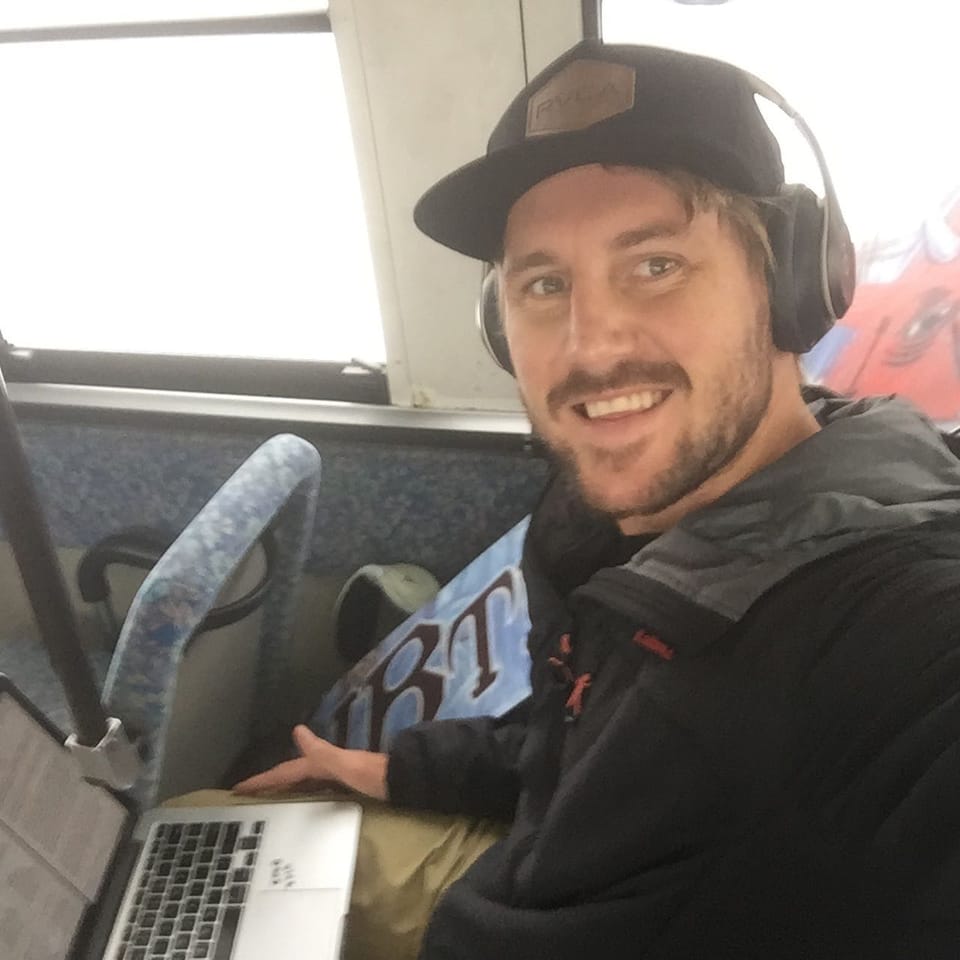From Lemonade Stand to Wellness Pioneer: Rory Callaghan's Journey

My entrepreneurial story begins with a lemon tree, a plastic cup, and a five-year-old's determination to earn enough money for lollies.
Growing up in one of the most isolated cities in the world, raised by a single mother with an absent father, I learned early that resourcefulness wasn't optional—it was essential. My brother stepped into a role no child should have to fill, and together we navigated a childhood where community became our extended family.
That first lemonade stand taught me something I've carried through every venture since: value creation is simple when you solve a real problem. People were thirsty; I had lemons. The exchange of ten cents for that cup of lemonade was my first taste of the beautiful simplicity of entrepreneurship.
By twelve, I'd upgraded to a bucket, shammy, and car wash detergent. I built a client list of ten cars at $10 each every weekend—my first recurring revenue model. After convincing my mum to invest in a lawnmower, I expanded to yard work at $15 per lawn, even recruiting friends for my first experience in team building. These weren't just side hustles; they were my business school.
At sixteen, while my friends were focused on weekend plans, I was running a Domino's Pizza store alone, making $4 an hour. The responsibility was overwhelming at times, but it taught me systems thinking—how each component of an operation needs to work in harmony with the others.
University brought its own challenges. Washing dishes at a café while living on $50 a week after expenses, I made a conscious choice to invest in skills rather than comfort. This period shaped my philosophy that short-term sacrifice for long-term growth isn't just admirable—it's strategic.
Armed with my sports science degree, I upgraded from dishwasher to personal trainer while studying for my masters in physiotherapy. Eventually landing a role as sports physiotherapist for the team I once played for as a kid was a full-circle moment. Helping young athletes like Paddy Cripps and Elliot Yeo get drafted to the AFL connected me to purpose bigger than myself.
But by 26, I was burned out. Treating over 10,000 patients across hospital, private, and performance settings had taught me a painful truth: a bad system will always beat a good person. As I watched flowers failing to bloom in poor soil, I realized we don't fix the flower—we transform its environment.
This crisis became my catalyst. Instead of continuing to work within broken systems, I pivoted to partner with an online wellness company. Together, we generated over $50 million in sales across seven global markets, reaching 52,000+ customers. By 30, I had built my first seven-figure business—one that still provides residual income today.
The money was never the goal; it was always about impact and freedom. The residual income proved we could have a four-hour workweek with more time and abundance simultaneously. I invested over $500,000 of those earnings back into self-development and self-funded the selfcare.global platform, turning wellness insights into an Amazon bestselling book and eventually a physical retreat venue.
When that venture didn't align with my "people before profits" mentality, I walked away—a decision that cost financially but preserved something more valuable: integrity.
Rather than pursuing an MBA, I partnered with GeniusU, helping scale their entrepreneur movement from 400,000 to 4.5 million students globally. Working with a company that eventually listed on the New York Stock Exchange, I guided over 1,000 entrepreneurs from every continent through intensive incubators and online programs.
Throughout this journey, giving back has remained non-negotiable. We've raised over $100,000 for multiple social impact projects in Bali, supporting organizations like Baliwise, Row for Role, Bali Hope, Scholars of Sustenance, Role Foundation, and Anak Kita Foundation.
Today, I'm focused on creating wellness spaces worldwide, building communities where healing flows naturally and connection serves as essential medicine. Our goal is simple but ambitious: impact one in eight people globally through personalized, integrated approaches to health.
This journey from lemonade stand to global impact wasn't linear or without setbacks. There were moments of doubt, spectacular failures, and nights wondering if I'd made the right choices. But that's the beauty of entrepreneurship—it's not about avoiding falls but learning how to rise again with greater wisdom.
If there's one thing I've learned, it's this: entrepreneurship isn't just about building businesses; it's about creating environments where transformation happens naturally. Whether it's a lemonade stand or a global movement, the principle remains the same—find a need, create value, and make ripples that outlast you.
The five-year-old selling lemonade for lollies never imagined where this path would lead. But looking back, I can see how each step—however small or uncertain—was necessary for the journey.
